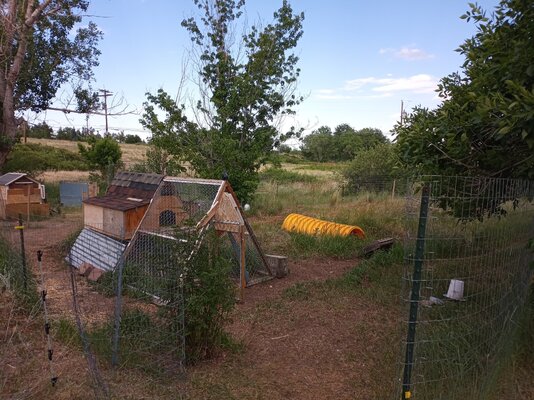JennyLeeF
Chirping
- Nov 6, 2020
- 42
- 25
- 74
Edit: if you've got a free range flock, over 2 years old,, with with same chickens.. please tell me if you have these issues and if not, what you do. While advice from people is great, it's not always helpful if advice comes from someone who has new chickens or doesn't free range.
I live in an acre. 1/4 of that is fenced for the chickens. It's part grass, part dirt, has couple trees and their coops.
They keep getting parasites. 1st it was mycoplasma, which they probably came with. 2nd it was lung worm, then it was coccidiosis then more lung worm.
What in the ever loving hell is happening? They have so much space, good bugs and worms, good feed, fresh water and I clean coops on the reg.
What can I do differently?
I live in an acre. 1/4 of that is fenced for the chickens. It's part grass, part dirt, has couple trees and their coops.
They keep getting parasites. 1st it was mycoplasma, which they probably came with. 2nd it was lung worm, then it was coccidiosis then more lung worm.
What in the ever loving hell is happening? They have so much space, good bugs and worms, good feed, fresh water and I clean coops on the reg.
What can I do differently?






